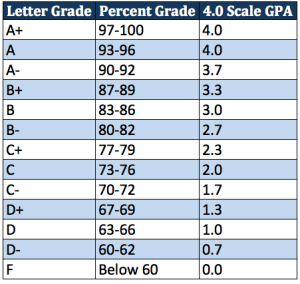 On Take Your Success, I regularly interview top-performing college students to understand how they’re successful, so you can recreate the success in your life. Take what’s helpful, dismiss what’s not!
On Take Your Success, I regularly interview top-performing college students to understand how they’re successful, so you can recreate the success in your life. Take what’s helpful, dismiss what’s not!
I interviewed lacrosse star Connor Buczek this week, and what I learned is that he is so well-rounded on and off the field.
At Cornell University, his major is Applied Economics and Management and he has a 3.5 GPA. That’s impressive in it’s own right. However, when you consider his lacrosse accolades—including being named Ivy League Player of the Year, named first-team All-American, and selected second overall in the Major League Lacrosse Draft—then you see how successful Buczek has been in college.
Although most of you probably don’t play lacrosse, or a college sport, you can use the mindset, strategies, and habits of Connor to improve your college experience. Let’s get to the interview.
——
Brian: How did you stay focused after being a high-school All-American lacrosse player to continue that excellence as a first-team All-American in college?
Connor: There’s a pretty significant jump from high school to college lacrosse in terms of the speed of the game, so success in high school isn’t always a perfect indicator of success at the next level. My freshman year had a lot of ups and downs and I didn’t play much. This small setback gave me the opportunity to watch the upperclassmen on our team, and I tried to emulate what made them successful. As a competitor I wanted to be on the field to help our team win, but understanding what it feels like sitting on the bench made me focus a lot of my energy on being the best lacrosse player and teammate that I could possibly be on a daily basis.
Brian: What drives you? In other words, what’s the why behind what you do on the lacrosse field and the classroom?
Connor: One of my greatest assets is my competitive nature and I think that drives a lot of what I do. In terms of lacrosse, I genuinely love the game. Putting in the work and competing is part of the fun of playing at a school like Cornell. I want to do more than just be a part of something. I’m not just going through the motions. I want to be the best at everything I do. So whether that’s in the classroom or on the field, I strive to be the best. Obviously this isn’t always the case, but that mindset has led me to success in a variety of different endeavors.
Brian: Who is your role model? Why?
Connor: My role models are without a doubt my parents. They taught me the value of hard work and perseverance and these values have shaped the way I approach life every day. Whether things are going well or I’m struggling, I always know I can lean on them for support and guidance.
Brian: What are the time-management or productivity tips that you use to navigate a full schedule between lacrosse activities and classes?
Connor: Time-management is all about discipline and effort. You have to work hard to understand when you are the most productive in order to balance whatever tasks you have at hand. For me, I quickly learned when I got to Cornell that I was not good at multitasking. I developed a system so that whatever I was working on, academics, lacrosse, etc, I was fully engaged in that one task. I would focus on one assignment at a time and basically work until it was completed. Another big thing is figuring out what time of the day you can be most productive. Personally, I do a lot of my homework after practice when I can focus solely on that task and not be concerned about the upcoming practice, workout, or class.
Brian: Tell me your advice for doing well in courses at an Ivy League university.
Connor: The best advice I could give anyone is to work hard and utilize the resources that are available. I am a big proponent of the old adage that if you put in the work, you will see the results. At Cornell, they do a great job of offering academic support for the athletic teams. So if you’re putting in the effort and you’re not seeing the results, you can reach out to one of the many services and ask for help.
Brian: On average, how many hours a night do you sleep? Is sleep important to your productivity?
Connor: I sleep about 8 hours a night. Sleep is incredibly important to my productivity because without it, I tend to lack the motivation to get work done unless it’s due immediately. I tend to procrastinate when I’m tired and this trend turns into a counterproductive cycle that just causes more stress than is necessary. If I am well rested, I am much better at staying on top of my assignments and avoiding late nights doing schoolwork. Needless to say, how rested I am also affects my performance on the field.
Brian: How would you advise freshmen to make the most of their college experience?
Connor: I would say get involved in whatever you can. I have made a lot of great friends throughout my time at Cornell by branching out and getting involved in a variety of different things. Lacrosse was a great starting point and it takes up a lot of time, but meeting people from different parts of campus has been an important and impactful part of my Cornell experience.
Brian: What are your plans for after graduation?
Connor: After graduation I am returning to Cornell to attend the Johnson Graduate School of Management to get an MBA.
——
Connor’s perspective is outstanding. Specifically, his perspective to learn from the upperclassmen on his team as a freshman, know his purpose for playing lacrosse, use his parents and academic resources for support, and know when and on how much sleep he works best are all correlated with his success.
What you and I can takeaway from this is to continue to learn about ourselves and constantly make an effort to experiment with what works and what does not. By beginning this process of refinement now, we will reap the benefits sooner.
Second, Connor’s success is built on hard-work and discipline. Showing up early to practice and staying late to work on his lacrosse shot is one example of his dedication. The best part for you is that nothing is holding you back from succeeding in your particular endeavor. You have the information in Why Talent Is Overrated to be an amazing success, too.
Readers, comment below on: What did you learn from this interview with Connor? Do you agree that personal reflection/perspective is a key to success? Is there anything else you found interesting?


